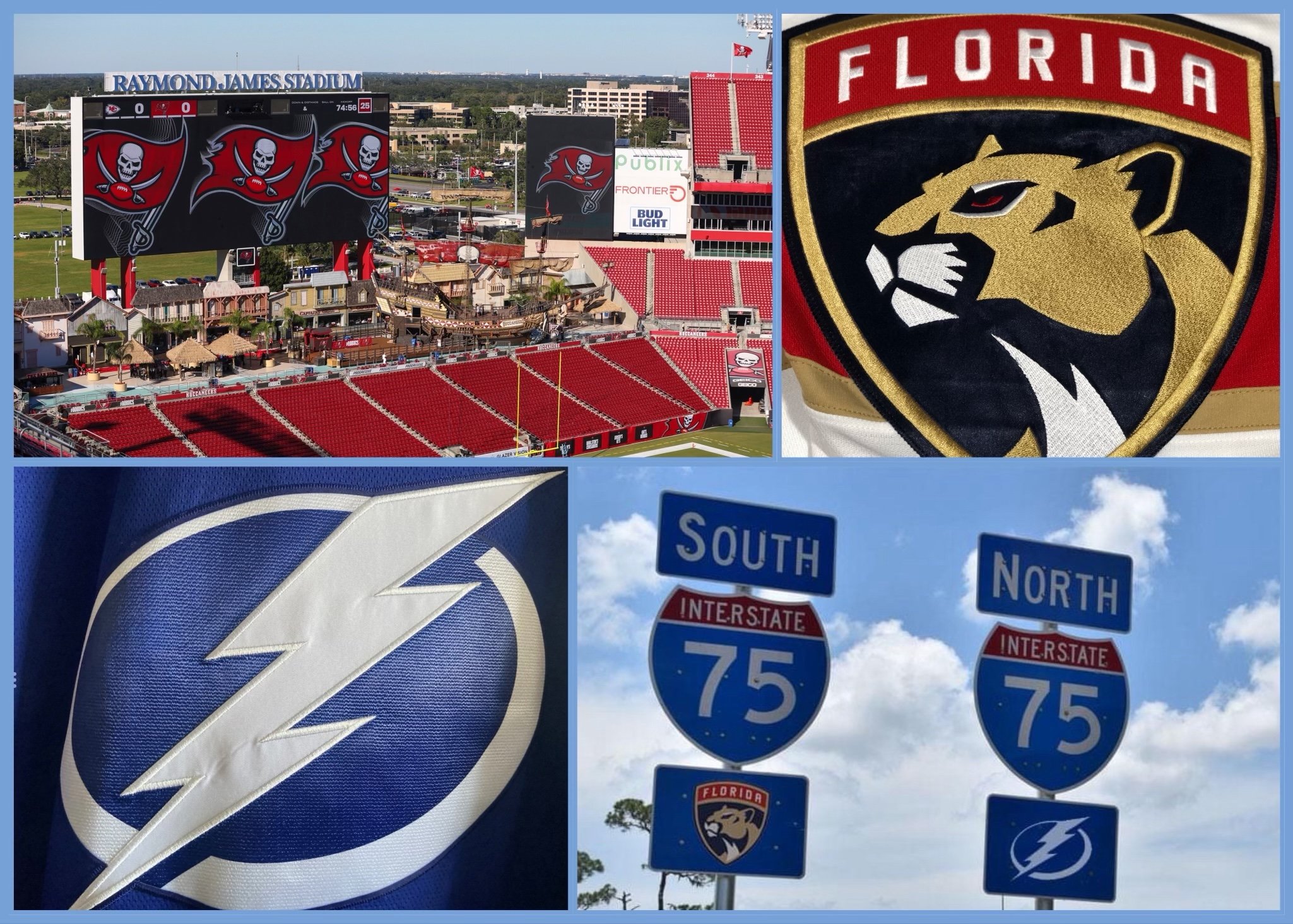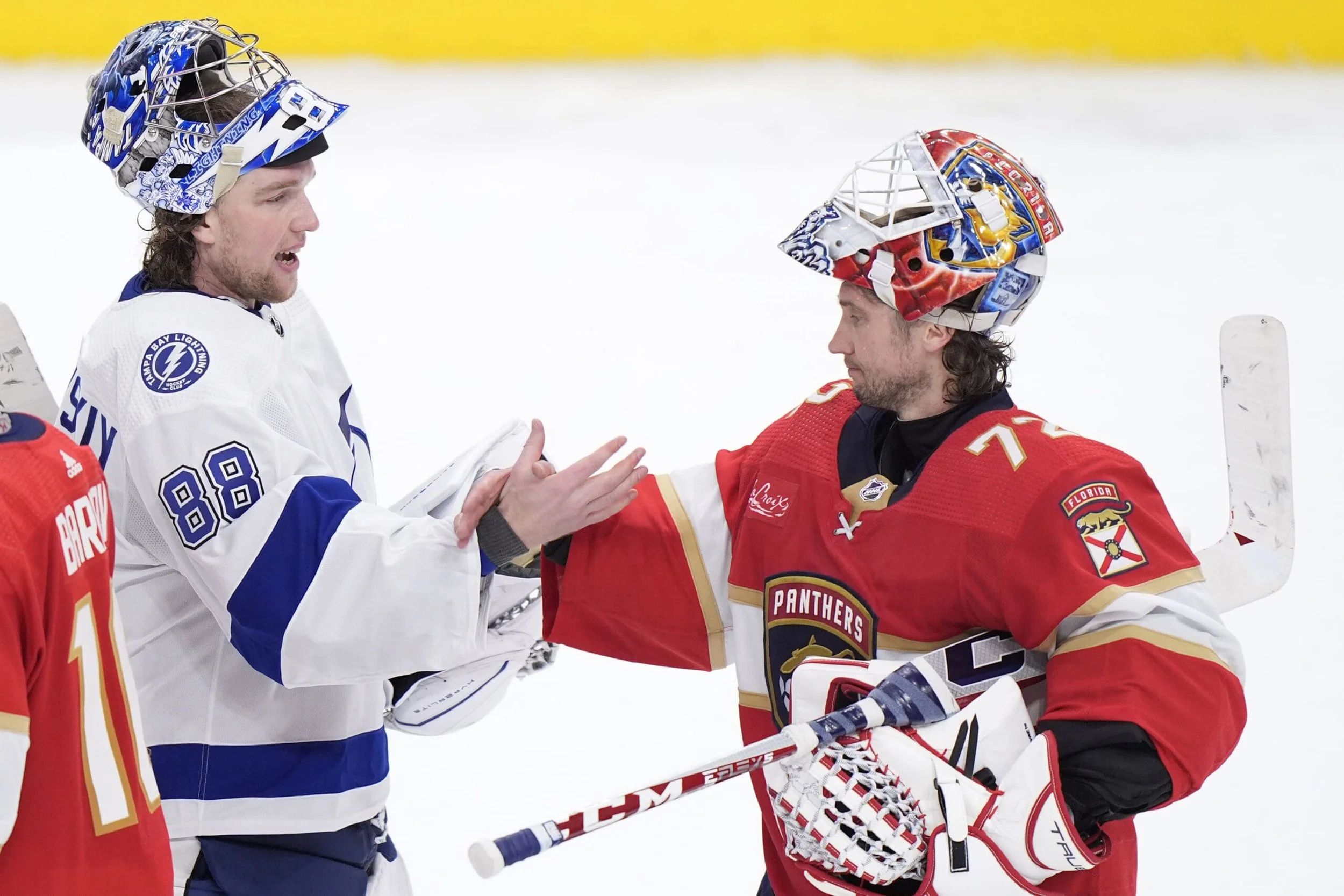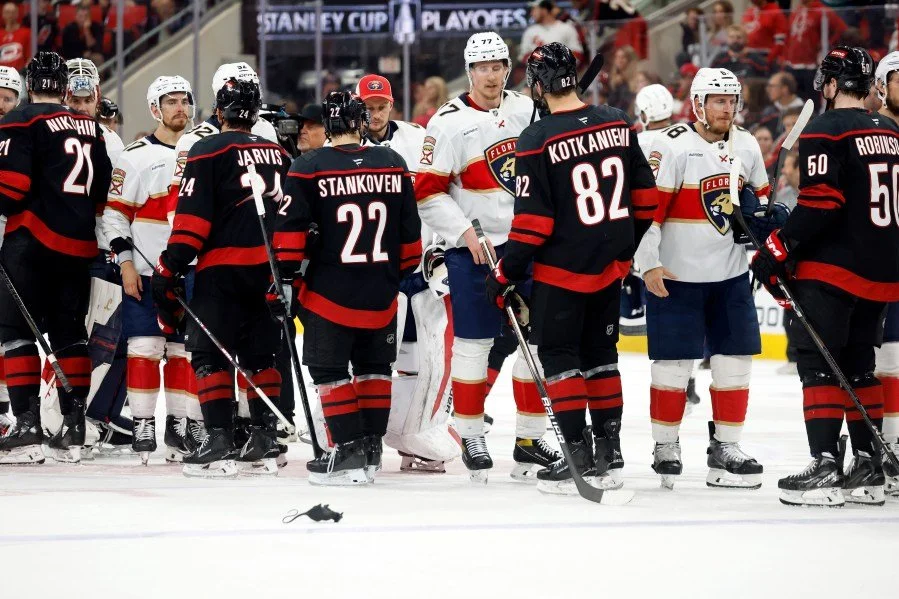No Taxes, No Winter, No Worries: The Florida Formula For Winning?
While the NHL pauses before the start of the final series, let’s catch up on a few issues emerging in the last month.
The re-appearance of the Florida Panthers to defend their Stanley Cup is their third consecutive time as Eastern Conference champions (they lost the Eastern Final in 2022). It also marks the sixth time since 2015 that a team from the state of Florida has made it to the Finals. If the Panthers win it will be four Cups in that period.
Which is amazing to those of us old enough to remember the Panthers and Lightning as the league’s doormats, the punchline to a bad joke about expansion to warm-weather locations. We can remember when the Cats games were events without a parking problem. Postgame, the tourists who made up the bulk of the small crowd would all hit the escape buttons on their rented cars to find them.
The sudden burst of success is, in part, attributable to the NHL’s tanking system in which teams with no hopes of a playoff series tried to get the best draft picks possible. Tampa had more luck earlier than Florida in this regard as a succession of top Panther picks fizzled while the Lightning picking stars like Vincent Lecavalier and Victor Hedman gave them a base on which to build Stanley Cup winners.
But the past decade has seen the Panthers pick up their draft game with franchise players Aleksander Barkov, Aaron Ekblad and Anton Lundell. The success of the Panthers and Lightning also can be traced to great trades such as Florida acquiring Matthew Tkachuk, a trade we deal with in depth in out current book Deal With It In fact the Panthers have two former Calgary Flames leading them— Tkachuk and Sam Bennett.
But the two Florida teams are also benefitting from the new sports economics in which players making large, sometimes huge, salaries are choosing to play in a state which has no state income tax. The combination of much lower taxes, warm weather and the relative anonymity of being a hockey celebrity in cities that have NFL or NBA teams is proving a huge advantage in attracting or keeping star players. In fact it’s not just Florida but the four other no-tax states with NHL teams (Tennessee, Washington, Texas, Nevada) that are benefitting.
For example, the Nashville Predators handed out $108.5M in contracts to Brady Skjei, Steven Stamkos and Jonathan Marchessault within the first hour or two of 2024 free agency, while the Lighting outbid the Hurricanes for Jake Guentzel. This year the test case seems to be where Mitch Marner ends up as a UFA if he leaves Toronto. And wither Connor McDavid?
So much so that some are urging the NHL to punish the no-tax states to protect grotesque tax states like California, New York and Illinois and the hopelessly overtaxed Canadian provinces. Yes, there are players who prefer big cities like Toronto, L.A. and NYC. But many players like the combination of low taxes, high returns, anonymity and (sometimes) nicer winter weather.
The NHL did something along these lines earlier this century with its CDN relief scheme that protected the five extant teams against a 63-cent CDN dollar. But it’s hard to see what they can do if liberal governments keep demanding more of earnings. Already those governments are taking taxes from visiting players to balance their books. Much more pandering to overtaxing and the NHL Players Association would be within their rights to object.
Another flash point was the recent decision by Florida’s head coach Paul Maurice to not have coaches and staff involved in the traditional handshakes at the end of a playoff series. Maurice’s decision seemed to surprise Carolina coach Rod Brind’amour as they met beside the benches following the Panthers’ clinching win.
The handshakes are one of the NHL’s signature traditions— none of the other Big Four sports has the same. American announcers cite them as a positive display, and so there was some mystery over the move. “ I don't believe that the coaches should shake players' hands at the end,” Maurice said after. “There's this long list of people in suits and track suits. We had like 400 people on the ice. They're all really important to our group. But not one of them was in the game.
“When I first got in the league, you would never want to shake the players' hands. Some coach wanted to get on camera is the only thing I can figure out, right? Maybe they wanted to shake Wayne Gretzky's hand. I don't know when it changed, but I don't think it's right. ... When you think of all the great competitions on the ice, hard, going after each other, and yet they shake hands like that. That's special. They're not sending Christmas cards to each other. This is nasty out there. Something very special to it.”
But the sentiment did not extend to the Edmonton/ Dallas handshake line. The usual armies of coaches and support people were on the ice to shake hands. Which leads to the question, what will happen when the Panthers/ Oilers series ends? Will Maurice convince Edmonton coach Khris Knoblauch to forgo the mob scene? Or will Edmonton continue the tradition of full-court clasping?
Probably it will depend on who’s winning the Cup. If it’s Florida they can probably continue their new tradition. If it’s the Oilers it’s a good bet they’ll go whole hog. Which begs the question why do teams from the Western Conference refuse to touch the Campbell Trophy as champs of their conference but then want to touch everyone and everything in site after the game?
Inquiring minds will want to know.
Bruce Dowbiggin @dowbboy is the editor of Not The Public Broadcaster A two-time winner of the Gemini Award as Canada's top television sports broadcaster, Bruce is regular media contributor. The new book from there team of Evan & Bruce Dowbiggin is Deal With It: The Trades That Stunned The NHL & Changed Hockey. From Espo to Boston in 1967 to Gretz in L.A. in 1988 to Patrick Roy leaving Montreal in 1995, the stories behind the story. In paperback and Kindle on #Amazon. Destined to be a hockey best seller. https://www.amazon.ca/Deal-Trades-Stunned-Changed-Hockey-ebook/dp/B0D236NB35/



